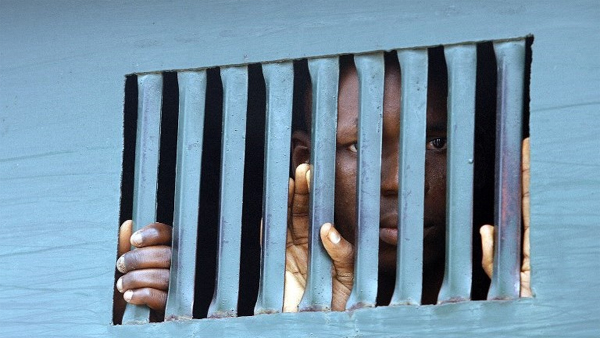 The Executive Board of International Monetary Fund (IMF) has approved US$3.4 billion in emergency financial assistance to support Nigeria in addressing the economic impact of COVID-19 shock and the sharp fall in oil prices.
The Executive Board of International Monetary Fund (IMF) has approved US$3.4 billion in emergency financial assistance to support Nigeria in addressing the economic impact of COVID-19 shock and the sharp fall in oil prices.
In a statement issued on Tuesday, the Fund said that the support, under the Rapid Financing Instrument, would help limit the decline in international reserves and provide financing to the budget.
“The Executive Board of the International Monetary Fund (IMF) approved Nigeria’s request for emergency financial assistance of SDR 2,454.5 million (US$ 3.4 billion, 100 per cent of quota) under the Rapid Financing Instrument (RFI) to meet the urgent balance of payment needs stemming from the outbreak of the COVID-19 pandemic,” the statement read in part.
According to the IMF, the near-term economic impact of COVID-19 is expected to be severe, while already high downside risks have increased.
READ ALSO: IMF says Nigeria, others need $114bn to fight coronavirus disease
“Even before the COVID-19 outbreak, Nigeria’s economy was facing headwinds from rising external vulnerabilities and falling per capita GDP levels.
“The pandemic, along with the sharp fall in oil prices, has magnified the vulnerabilities, leading to a historic decline in growth and large financing needs.
“The IMF financial support will help limit the decline in international reserves and provide financing to the budget for targeted and temporary spending increases, aimed at containing and mitigating the economic impact of the pandemic and of the sharp fall in international oil prices.
“The IMF remains closely engaged with the Nigerian authorities and stands ready to provide policy advice and further support, as needed,” the IMF said.
Following the Executive Board’s discussion of Nigeria, Mr Mitsuhiro Furusawa, IMF Deputy Managing Director and Acting Chair, said the COVID-19 outbreak, magnified by the sharp fall in international oil prices and reduced global demand for oil products, was severely impacting economic activity in Nigeria.
READ ALSO: Nigeria records 64 new cases of COVID-19, total infections now 1337
Furusawa said these shocks had created large external and financing needs for 2020, while additional declines in oil prices and more protracted containment measures would seriously affect the real and financial sectors and strain the country’s financing.
“The authorities’ immediate actions to respond to the crisis are welcome. The short-term focus on fiscal accommodation would allow for higher health spending and help alleviate the impact of the crisis on households and businesses.
“Steps taken toward a more unified and flexible exchange rate are also important and unification of the exchange rate should be expedited.
“Once the COVID-19 crisis passes, the focus should remain on medium-term macroeconomic stability, with revenue-based fiscal consolidation essential to keep Nigeria’s debt sustainable and create fiscal space for priority spending.
“Implementation of the reform priorities under the Economic Recovery and Growth Plan, particularly on power and governance, remains crucial to boost growth over the medium term.
“The emergency financing under the RFI will provide much-needed liquidity support to respond to the urgent BOP needs. Additional assistance from development partners will be required to support the government’s efforts and close the large financing gap.
“The implementation of proper governance arrangements—including through the publication and independent audit of crisis-mitigating spending and procurement processes—is crucial to ensure emergency funds are used for their intended purposes,” Furusawa said.

